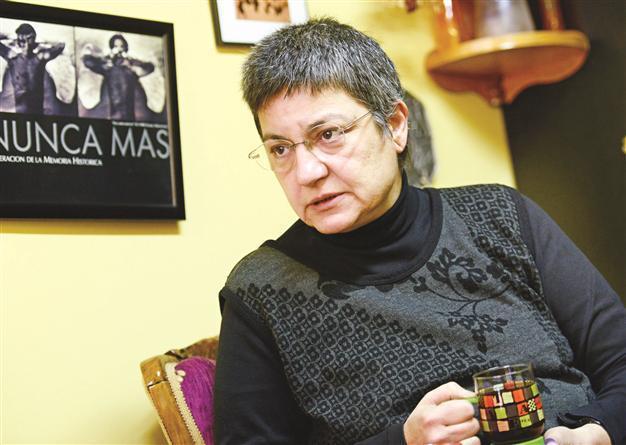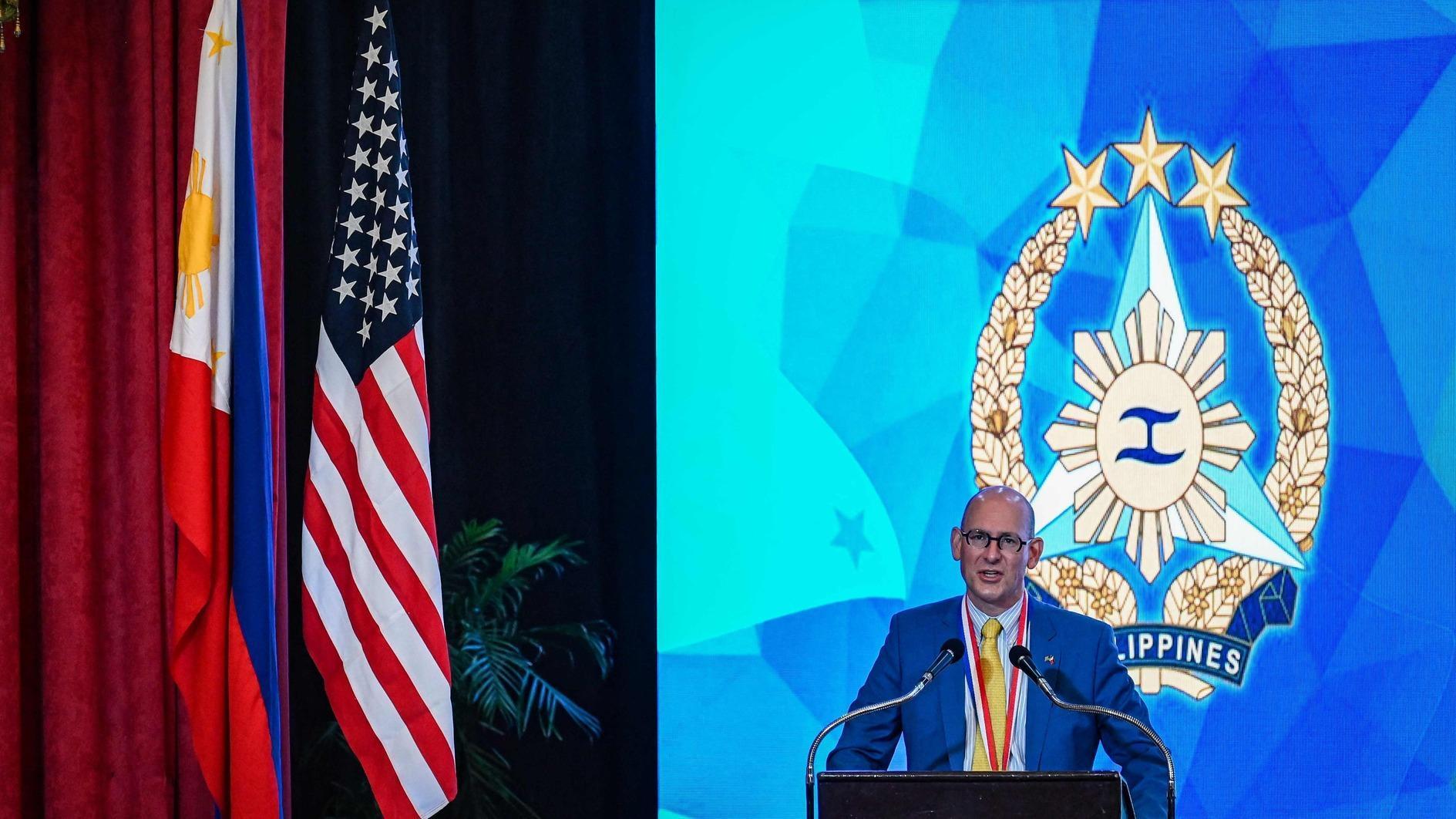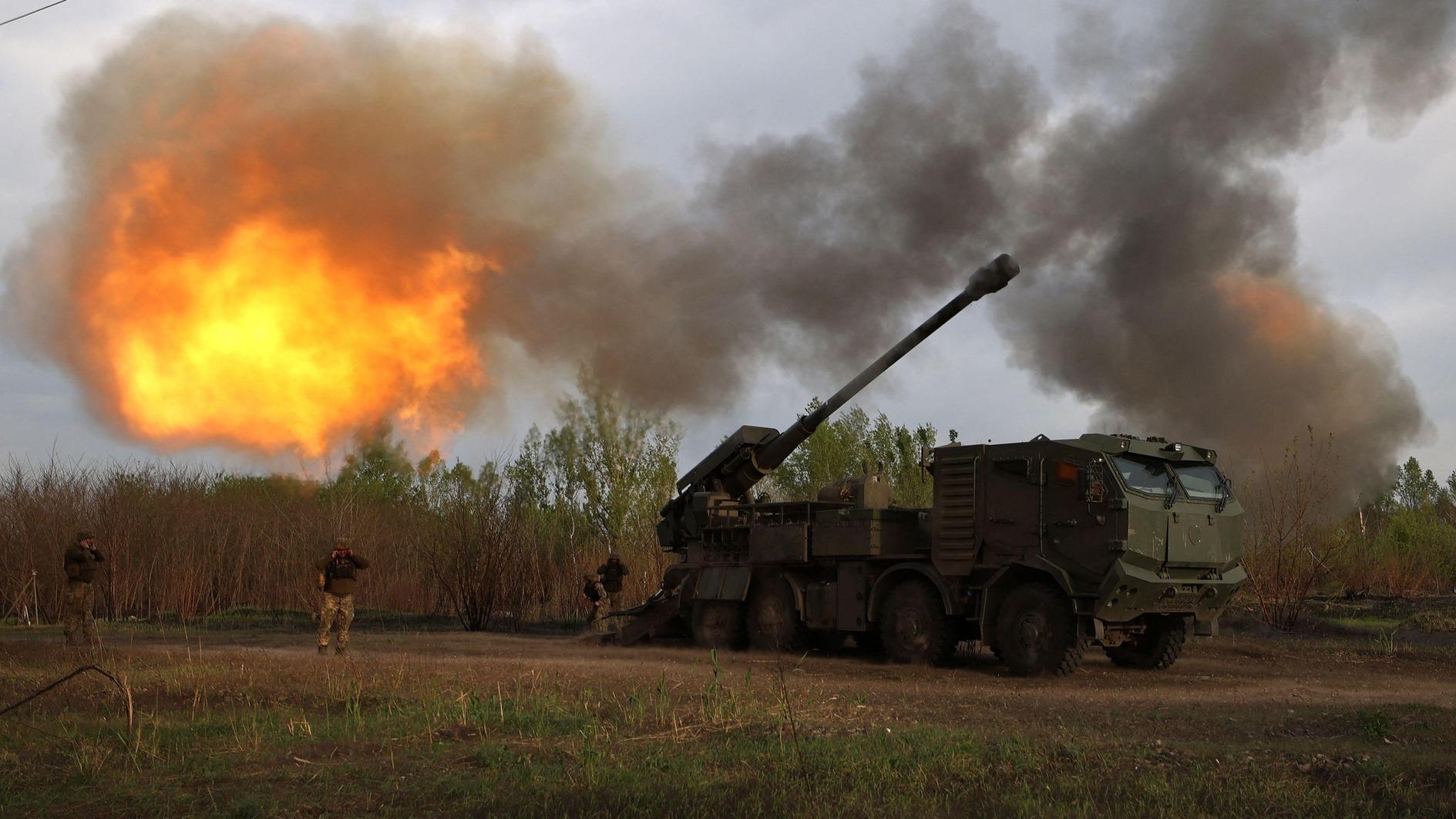Turk activist reveals ugly truth in Bahrain
ISTANBUL- Hürriyet Daily News

Forensic expert Dr Financı, who has devoted her entire life to fighting against torture and human rights violations, reveals a torture case in Bahrain. DAILY NEWS photo, Emrah GÜREL
A Turkish forensics expert sneaked into Bahrain as a tourist and conducted a secret autopsy to prove that government forces had tortured a 23-year-old Bahraini man, Yousef Mowali, who had been diagnosed with schizophrenia.Dr. Şebnem Korur Fincancı, who has devoted her life to fighting torture and human rights violations around the world, proved with her autopsy that the victim was electrically tortured to the point that his life was at risk.
Mowali had left his home near the international airport to go for a walk on Jan. 11 and never returned. Police said they found Mowali’s body floating in the sea on Jan. 13 in the Amwaj region not far from his family’s home in Muharraq. A state doctor reported the cause of death as drowning and ruled out signs of violence.
However Mowali, who had been diagnosed with schizophrenia a few years earlier, was taken into custody by the police during his walk.
His family, who were only able to receive his body after eight days, wanted a second autopsy report done by an independent forensic pathologist in order to prove that torture was used.
Following the family’s request, human rights activists in Bahrain contacted the International Rehabilitation Council for Torture Victims (IRCT) for help.
“The lawyers in the IRCT sent an email to our group and asked for a forensic expert who could take the risk to go to Bahrain and examine the body of a torture victim. I was the most suitable among all of us because I did not need a visa to go inside Bahrain and did not look European at all, so I would not attract any attention,” Fincancı said.
Fincancı went to Bahrain Jan. 20 and stayed at the home of an activist to make it easier to collect what she needed for the forensic examination.
“I bought the surgical equipment in Bahrain, and we also found the necessary chemical solutions to put tissue samples in. I wore a long dress and hijab in order to look like a relative of the family who was visiting to express condolences. There were several police outside the place of the funeral but they were not suspicious of me because they were probably expecting a man and a European,” Fincancı said.
Fincancı made the two-hour-long forensic examination secretly inside the place where the funeral was being held.
“I took tissue samples from the body of the victim at the place of the funeral. The most important thing was the chest bone because the police insisted that he drowned. I took the chest bone and put it in the chemical solution I had brought with me. The most difficult part was making the stitches on my own because I did not have the proper equipment for it. I asked for a quilting needle, and they found it. I finished the work and left the house. However, I heard that police raided the [place] after I left,” Fincancı said.
Fincancı brought the tissue samples back to Istanbul and conducted a forensic examination with her colleague Gülçin Başdemir in a private laboratory.
Fincancı also consulted other forensic doctors, including Fikri Öztop, a specialist in wounds resulting from electrical torture. They concluded that not only had Mowali been electrically tortured, but they found, through examining samples from his lungs, that he had been unconscious when he drowned.
“We have proved that the scars on the hands and feet were the scars of electrical torture. The victim was most likely unconscious when he was thrown into the sea and this is why he drowned. We sent the report to the IRCT,” Fincancı said.
The family has submitted Fincancı’s autopsy report to the office of Bahrain’s public prosecutor in May to be considered as part of the investigation into Mowali’s death.
Bahrain is not the first country in which Fincancı has used her forensic skills to investigate torture; she has repeatedly put her profession and life at risk in order to do so. Since the period of military rule in Turkey in the 1980s, Fincancı has examined many cases of electrical and other torture.
She went to Bosnia in 1996 with an initiative of the U.S.-based organization Physicians for Human Rights in order to investigate the cause of death of bodies found in Bosnian mass graves. She has also been to the Philippines, Israel, Russia and New Zealand for the forensic examination of people who claim to have survived torture.
She is a founding member and current head of the Human Rights Foundation of Turkey, a nongovernmental, nonprofit organization established in 1990 to provide treatment and rehabilitation services for torture survivors and to document human rights violations in Turkey.
However, Fincancı was discharged from her post in the Forensic Medicine Institute in Istanbul due to torture reports she authored that were criticized by authorities. Fincancı is not as optimistic about recent human rights developments in Turkey as those who believe the situation in the country has improved.
“It is true that we don’t see the old type of torture methods such as electrical torture and falanga anymore. But this does not show that human rights have improved in Turkey. Yes, they generally don’t carry out old types of torture in police stations anymore, but the police use a lot of violence when taking people into custody. They severely beat them, use a lot of tear gas, etc. There are people who are killed because of tear gas in Turkey,” Fincancı said.
Fincancı also said long detention periods and violations of fair trials occur in Turkey.
“There is no freedom of speech in Turkey, anybody who wants to protest encounters severe violence; people suffer from long detention periods in prisons. Yes, torture is inhumane, but all these [actions] are against basic human rights too,” she said.
















